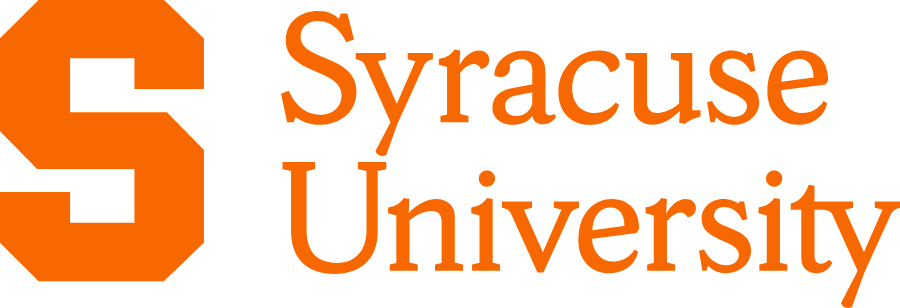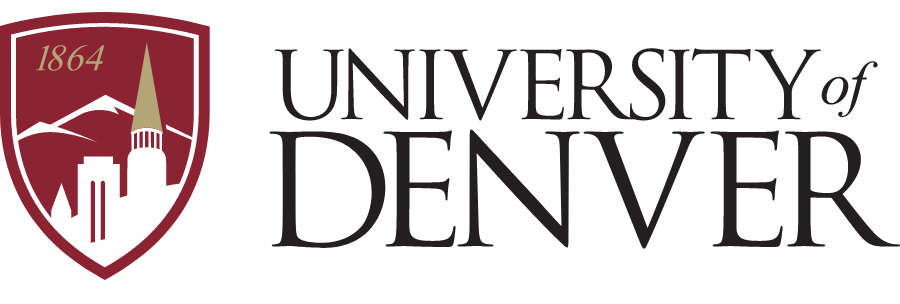Librarianship is an extremely flexible career field. People who study to become professional librarians, whether they want to work in public, academic, or K-12 school libraries, understand that their job requirements will stretch far beyond whatever they learned in school – this is because librarianship is a career that seeks to serve communities, and all communities have their own unique needs based on a variety of factors, such as location, socio-economic status, population, and more. If you are living in the state of Alabama and considering becoming a librarian, it is important to know exactly what you will need to do to ensure that you have the proper foundational education you need to meet your specific career goals.
Librarian roles come in many shapes and forms; depending on the type of librarian you want to become, the state of Alabama has requirements that differentiate these different professional pathways. Like many other states, Alabama has a special protocol for prospective K-12 school librarians to meet before entering a career as a school librarian or media coordinator. However, there are less requirements set for prospective public service or academic librarians in comparison to K-12 school librarians in Alabama.
Featured MLIS Programs
ADVERTISEMENT
Syracuse University
Master of Science in Library and Information Science Online
Syracuse University offers an online MS in Library and Information Science. The program can be completed in 18 months and includes the option to specialize in School Media or customize the program to align with your professional goals. No GRE is required.*
University of Denver
Master of Library and Information Science Online
University of Denver’s Morgridge College of Education offers an online, ALA-accredited Master of Library and Information Science program. Learn from practitioners and gain the service-based skills needed to connect communities with information in the digital age. No GRE is required.*
St. John’s University
Online Master of Science in Library and Information Science
Gain the advanced expertise that information specialist positions require with the online M.S. in Library and Information Science program from St. John’s University. Achieve your career goal by selecting from one of the following specializations:
Arizona State University
M.Ed in Learning Design and Technologies
Create literacy programs and curricula that fully incorporate digital technology and include themes of social justice.
Basic Educational Requirements for All Librarian Types in Alabama
Before entering any field of librarianship, all prospective librarians need to accomplish a couple educational requirements:
- Graduate with an undergraduate degree in any subject matter or concentration from a four year college or university.
Librarians generally enter the field with a wide collection of knowledge from a variety of subject areas between them all. It isn’t unusual to meet librarians who moved into the field from other careers held prior to entering an Master of Library and Information Science (MLIS) program. For example, second-career librarians may have formerly been teachers, accountants, managers, nurses, computer technicians, and beyond.
Because an MLIS program doesn’t have a specific undergraduate degree requirement (just that you enter the MLIS program with a completed undergraduate degree in any subject matter), libraries are often staffed with professionals who collectively hold degrees in many fields. This can be an extremely valuable asset for a facility to have, as a staff with varied educational backgrounds are also a staff with many different sets of skills and knowledge to share with their communities.
- Graduate from an American Library Association (ALA) accredited MLIS degree program.
The ALA sets the national standard for excellence in libraries. Colleges and universities with MLIS programs seek accreditation from the ALA because it serves as a common stamp of satisfactory educational standards within their coursework requirements. There are different subsections of ALA, such as the American Association of School Librarians (AASL) and the Association of College and Research Libraries (ACRL). This is why all types of libraries – public service, K-12 school, and academic – often list ALA-accredited degrees as requirements on their librarian job postings. An ALA accreditation serves as a universal set of standards for how any good American library should operate and serve.
Not all MLIS programs have an ALA accreditation, and prospective Alabama librarians do not absolutely have to attend an ALA-accredited institution to earn their degrees. However, like many other states, various Alabama institutions often list an ALA-accredited MLIS degree as either a requirement or a preferred qualification on their job listings. As a prospective librarian considers the institutions and facilities in which they would want to work, they should take note of which libraries’ job postings specifically ask for ALA-accredited degrees from their candidates. While some libraries are more flexible than others, many institutions list an ALA-accredited degree as a non-negotiable requirement for any prospective librarian applicant.
Becoming a Public Service Librarian in the State of Alabama
Like every other state, public service librarians and the facilities they staff provide crucial resources to communities all across the state of Alabama. To become a public service librarian in Alabama, a prospective librarian must follow the basic educational requirements for librarians listed in the section above.
Upon the completion of an MLIS degree, prospective librarians can seek employment in a variety of public library settings across Alabama. According to the Alabama Public Library Service (APLS), there are public library branches in all sixty-seven Alabama counties, ready to serve the communities in which they are found.
For public service librarians wanting to extend their knowledge further with continuing education and professional development opportunities, the APLS offers these resources to its librarians. Another option for further training includes conferences, sessions, courses, and more from the Alabama Library Association.
Becoming a K-12 School Librarian in the State of Alabama
Compared to public service and academic librarianship in Alabama, becoming a K-12 school librarian probably has the most unique and specific set of requirements to meet. This is because K-12 school librarians are held to a specific set of standards set forth by the Alabama State Department of Education, and are outlined in the Alabama Administrative Codes as shown below:
- At least a valid Class B Professional Educator Certificate in a teaching field, a valid Class A Professional Leadership Certificate, or a valid Class A Professional Educator Certificate in a teaching field or in another area of instructional support.
- At least one survey of special education course is required unless that course was taken for prior level certification.
- Satisfactory completion of a State-approved program with a minimum GPA of 3.0 in all courses in the Alabama State Board of Education approved program for library media specialists.
- Competence to perform as a library media specialist in internship experiences which total at least 300 clock hours, with at least half of the time in one or more P-12 school libraries, including elementary and secondary grades. Internships in P-12 schools must be supervised by individuals who hold a valid master’s level professional educator certificate in library media and who are employed as librarians.
- Two full years of full-time, acceptable professional educational work experience if admitted prior to July 1, 2017.
In Alabama, future school librarians are often already teachers – this is because school librarians in Alabama must hold a professional educator’s certificate and already have a minimum of two years’ worth of professional educational work experience under their belts.
However, this doesn’t mean that prospective K-12 school librarians should give up their dreams of being in a school library if they aren’t already teachers before entering an MLIS program. According to School Library Connection, future K-12 school librarians who aren’t already teachers can complete a probationary two-year-long program during their initial employment during which they are closely monitored by the Alabama State Department of Education. This employment is offered through an Interim Employee Certificate (IEC), which denotes that the school librarian is working under probation in this internship-style program until they meet all the requirements to become a full-fledged, licensed K-12 school librarian in Alabama.
Beyond the educational requirements, prospective K-12 school librarians in Alabama must also pass the Praxis exam with at least a minimum score of 148. These tests are typically taken at or near the end of an MLIS program; classes taken during the program are designed to prepare a future school librarian for success on these exams. A minimum score of 148 is required for obtaining the school library certification to add to a teaching incense in Alabama.
School Library Connection also explains that these requirements – particularly the ones concerning licensure as a K-12 school librarian – are necessary for future librarians seeking employment in public and private schools across the state of Alabama.
Featured MLIS Programs
ADVERTISEMENT
Syracuse University
Master of Science in Library and Information Science Online
Syracuse University offers an online MS in Library and Information Science. The program can be completed in 18 months and includes the option to specialize in School Media or customize the program to align with your professional goals. No GRE is required.*
University of Denver
Master of Library and Information Science Online
University of Denver’s Morgridge College of Education offers an online, ALA-accredited Master of Library and Information Science program. Learn from practitioners and gain the service-based skills needed to connect communities with information in the digital age. No GRE is required.*
St. John’s University
Online Master of Science in Library and Information Science
Gain the advanced expertise that information specialist positions require with the online M.S. in Library and Information Science program from St. John’s University. Achieve your career goal by selecting from one of the following specializations:
Arizona State University
M.Ed in Learning Design and Technologies
Create literacy programs and curricula that fully incorporate digital technology and include themes of social justice.
Becoming an Academic Librarian in the State of Alabama
Academic librarianship in Alabama follows a similar pathway to many other states. Typically, academic librarians in Alabama…
- Follow the basic education requirements for future librarians listed above
- Often have another higher education-level degree in a subject matter related to the college or university library in which they are working (though this isn’t always the case – other advanced degrees aren’t always requirements to work in an academic library setting)
For example, the types and numbers of academic libraries per college or university campus can differ widely from school to school. A larger university may have multiple libraries on its campus to specially tailor services to the departments there.
A school with a big law program, for example, may have a law library on campus that specifically supports that department, its faculty, and its students. The librarians staffing this type of special academic library may have legal backgrounds, which are helpful when trying to assist law students and professors with finding the resources and information they need to be successful in the classroom.
The Network of Alabama Academic Libraries (NAAL), which was formed in 1984 by the Alabama legislature, exists to connect academic libraries in Alabama with each other to make information and resource sharing among academic institutions easier and more transparent. According to their website, the NAAL “seeks to eliminate financial, physical, political, and technological barriers that prevent students and other users from obtaining needed information.” The NAAL’s website also serves as a hub for important news transpiring in Alabama’s academic library world, making it easier for information professionals to know what’s happening within their state and what resources are available to them.




